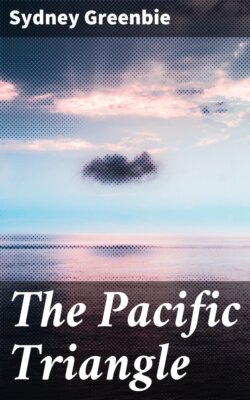Читать книгу The Pacific Triangle - Sydney Greenbie - Страница 21
На сайте Литреса книга снята с продажи.
6
ОглавлениеTo a creature from another world, hovering over us in the unseen ether, watching us move about beneath the sea of air which is life to us, Honolulu would seem like a little glass aquarium. The human beings move about as though on the best of terms with one another. Some look more gorgeous than others, but from outward appearances they are as innocent of ill intentions against one another as the aquatic creatures for which Hawaii is famous, out in the cool, moist aquarium at Waikiki.
Kihikihi, the Hawaiians call one of them, and his friends the white folk have christened him Moorish Idol. I don't know what Kihikihi means, but as to his being an idol, I can't accept that for a moment, except in so far as he deserves to be idolized. For about him there is no more of that static, woodeny thing which idols generally are than there is about Pavlowa. Yet he is only a fish, and not so very large at that. He is moon-shaped, but rainbow-hued. He is perhaps three-quarters of an inch across the shoulders, but six inches up and down, and perhaps eight from nose to the ends of his two tails. And so he looks like a three-quarter moon. Soft, vertical bands of black, white, and egg-yellow run into one another on both sides, and a long white plume trails downward in a semicircle. He is the last word in form, translucent harmony of color and of motion. He moves about with rhythmic dignity and grace. At times his eyes bulge with an eagerness and self-importance as though the world depended on him for its security. Though he is constantly searching for food, he does not seem avaricious; and while he admits his importance, he is not proud.
Kihikihi has a rival in Nainai, who has been given an alias,—Surgeon Fish, light brown with an orange band on his sides. Nainai is heavier than Kihikihi, more plump. His color, too, is heavier and therefore seems more restrained. It is richer and hence stimulates envy and desire.
Lauwiliwili Unkunukuoeoe has no aliases, thank you, but he has a snout on which his Hawaiian name could be stamped in fourteen-point type and still leave room for half a dozen aliases. Only a water-creature could possess such a title as this and keep from dragging it in the mud. Knowing that he would be called by that appellation in life, his Creator must have compensated him with plenty of snout.
But it is better to have one long snout than eight. And though no one would give preference to any devil-fish, this long-snouted creature is the rival by an inverse ratio of that eight-snouted glutton. The octopus, the devil of the deep, is an insult to fishdom. The Moorish Idol and this Medusa-like monster in the same aquarium make a worse combination than Dr. Jekyll and Mr. Hyde. This ugly, flabby, boneless body, just thick skin and muscle, with a large bag for a head,—eight sea-worms extending and contracting in an insatiable search for food is the paramount example of gross materialism. If only the high cost of living would drive to suicide this beast with hundreds of mouths to feed, the world might be rid of a perfidious-looking monster. But his looks do him great injustice, and were the Hawaiian variety—which is, after all, only squid—to disappear, the natives would be deprived of one of their chief delicacies. At the markets—that half-way house between aquaria and museums—numerous dried octopus, like moth-eaten skins, lie about waiting for the housewife's art to camouflage them. But I shall have something to say elsewhere about markets and museums, and now shall turn, for a moment, to more startling wonders still.
